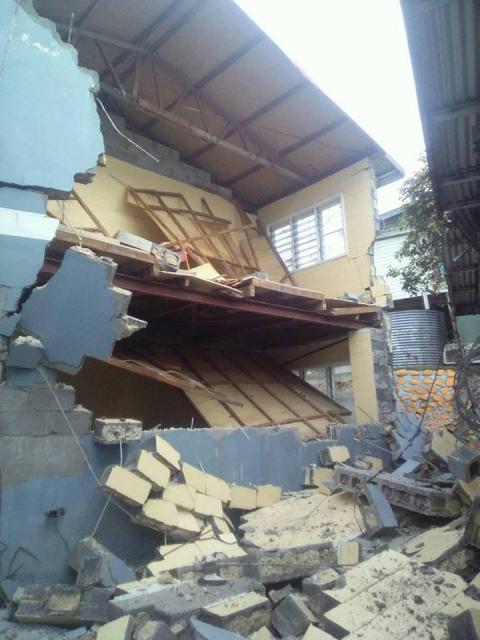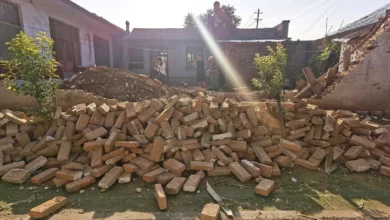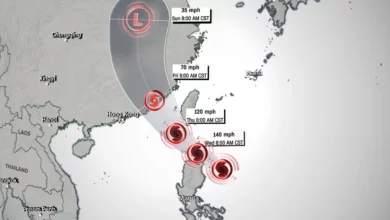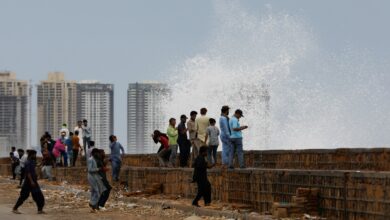
Whole villages were flattened and water sources spoiled by a powerful earthquake that killed at least 20 people, residents said on Wednesday as rescuers struggled to reach the hardest-hit areas in Papua New Guinea’s remote, mountainous highlands.
The magnitude 7.5 quake rocked the rugged Southern Highlands province some 560 km (350 miles) northwest of the capital, Port Moresby, triggering landslides, damaging mining, gas and power infrastructure, and cutting communications.
Scores of aftershocks have hampered rescue efforts and rattled nervous villagers over the past two days, including a 6.0 tremor just before 1 p.m. (0300 GMT) on Wednesday registered by the US Geological Survey.
Most of the confirmed fatalities were in or around the provincial capital of Mendi, where television pictures showed collapsed buildings and landslides, and the town of Tari, according to authorities and residents contacted by Reuters.
“It’s massive destruction,” Stanley Mamu told Reuters by telephone from Tari, 40 km (25 miles) from the epicenter. One person was killed in Tari and another five were killed in a landslide in a nearby village, he said.
“There are buildings on the ground and landslides along the roads. My home was destroyed. The main sources of water were all flooded, it’s dirty and brown and people can’t drink that water,” Mamu said.
Elsewhere rivers had silted up or become blocked, villages damaged and gardens and water tanks destroyed, though the biggest landslides hit sparsely populated areas, according to Mission Aviation Fellowship (MAF), an air transport operator that flew a three-hour survey on Tuesday.
A cloudy morning and fog in the afternoon on Wednesday hampered official efforts to assess damage by helicopter, let alone distribute aid, said Kaigabu Kamnanaya, Director of Risk Management at Papua New Guinea’s National Disaster Centre.
Miners and oil and gas companies were also assessing the damage, which included ensuring a 700-km (435-mile) gas pipeline that connects to a coastal liquefaction plant was intact before it could be reopened.
Australia sent a C-130 military transport plane to help with aerial surveillance. The office of Australia’s Foreign Minister Julie Bishop said in a statement it would likely take days before the extent of the damage was clear.
A police officer in Mendi said landslides had buried homes and blocked a river residents worried could flood the town.
“We are really in deep fear,” said police sergeant Naring Bongi. “It continues to be active. We didn’t sleep well and stayed awake until daybreak … no helicopters or government officials have come to our assistance.”
Medical supplies and heavy equipment to clear landslides were also needed, said James Justin, a spokesman for provincial MP Manasseh Makiba, as well as food in places where productive gardens had been wrecked.




